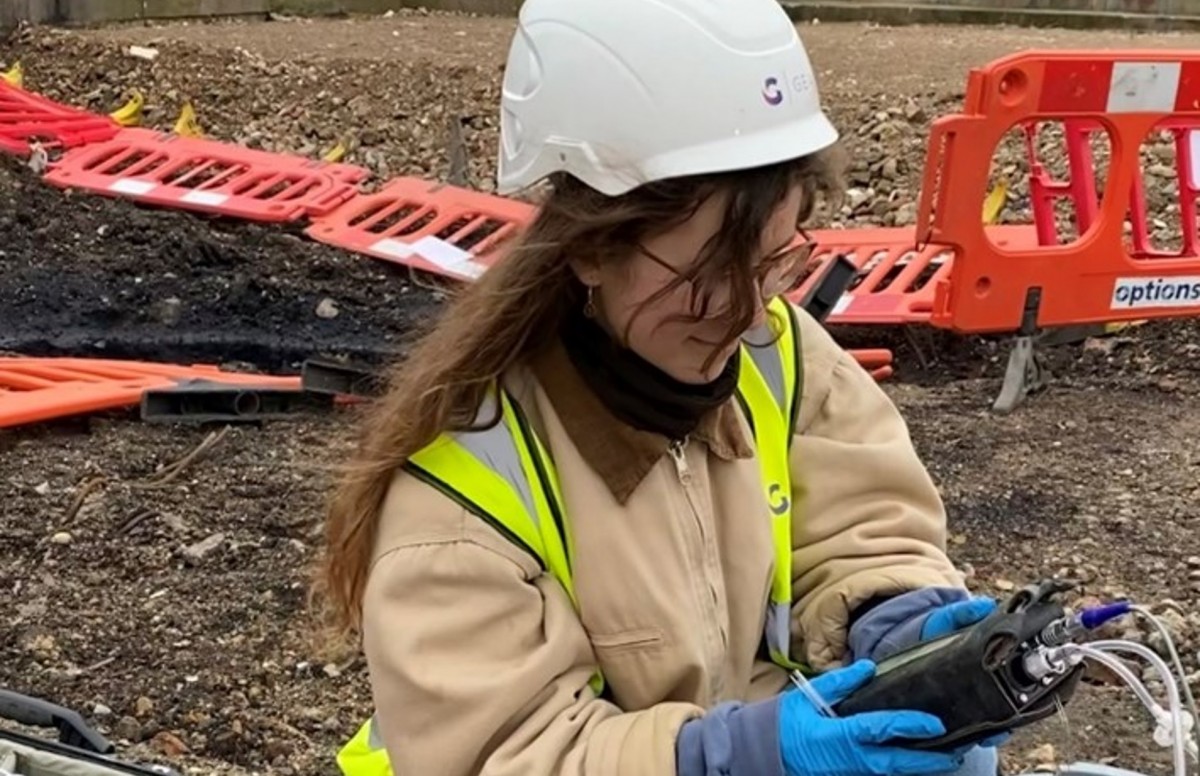10 Easy Facts About Geotheta Described
10 Easy Facts About Geotheta Described
Blog Article
An Unbiased View of Geotheta
Table of ContentsWhat Does Geotheta Mean?Some Of GeothetaGeotheta - The FactsThe 10-Second Trick For GeothetaThe Ultimate Guide To Geotheta

They conduct site examinations, accumulate samples, execute laboratory tests, and analyze information to assess the viability of the ground for building and construction projects - Geo Tech Engineering. Based on their findings, geotechnical designers offer suggestions for foundation layout, slope stability, maintaining frameworks, and reduction of geotechnical hazards. They team up with other specialists, such as engineers, architectural designers, and construction groups, to ensure that geotechnical factors to consider are integrated into the general job style and application
By assessing the actions and homes of soil and rock, they can recognize possible geotechnical risks such as landslides, dirt settlement, or incline instability. Their know-how assists stop failures or crashes that can jeopardize lives and residential property. Right here are some in-depth responsibilities and obligations of a geotechnical engineer: Website Examination: Geotechnical engineers conduct website examinations to collect information on subsurface conditions.
They analyze the information to understand the residential properties and actions of the dirt and rock, including their toughness, leaks in the structure, compaction qualities, and groundwater conditions. Geotechnical Analysis and Style: Geotechnical engineers examine the data gathered during site investigations to evaluate the stability and suitability of the website for construction jobs. They perform geotechnical calculations and modeling to assess factors such as birthing capacity, settlement, slope security, lateral earth pressures, and groundwater flow.
Not known Factual Statements About Geotheta
Structure Style: Geotechnical designers play an important function in making structures that can securely sustain the designated structure. They examine the dirt problems and lots needs to figure out the suitable structure type, such as shallow structures (e.g., footings), deep foundations (e.g (https://www.huntingnet.com/forum/members/geotheta.html)., heaps), or specialized techniques like dirt enhancement. They take into consideration elements such as negotiation restrictions, birthing capability, and soil-structure interaction to establish optimum structure layouts
They assess construction plans, monitor site activities, and perform field assessments to confirm that the layout recommendations are adhered to. If unforeseen geotechnical issues emerge, they evaluate the circumstance and supply recommendations for removal or modifications to the style. Danger Evaluation and Reduction: Geotechnical designers evaluate geotechnical dangers and threats connected with the job website, such as landslides, liquefaction, or soil disintegration.

Collaboration and Communication: Geotechnical engineers function carefully with other professionals entailed in a task, such as engineers, structural designers, and building and construction groups. Efficient interaction and partnership are important to incorporate geotechnical factors to consider right into the overall job layout and building and construction procedure. Geotechnical designers provide technological experience, answer inquiries, and guarantee that geotechnical needs are satisfied.
Not known Facts About Geotheta
Here are some kinds of geotechnical engineers: Structure Designer: Structure engineers concentrate on developing and evaluating foundations for frameworks. They assess the dirt problems, load requirements, and website characteristics to identify the most proper structure kind and design, such as shallow foundations, deep structures, or specialized methods like stack foundations.
They assess the aspects influencing slope stability, such as soil residential or commercial properties, groundwater conditions, and incline geometry, and develop strategies to stop slope failings and reduce dangers. Earthquake Designer: Quake designers concentrate on evaluating and creating frameworks to hold up against seismic forces. They assess the seismic risk of a site, examine dirt liquefaction potential, and create seismic design criteria to guarantee the safety and strength of frameworks during quakes.
They execute area screening, gather samples, and analyze the gathered information to characterize the dirt residential or commercial properties, geologic formations, and groundwater conditions at a website. Geotechnical Instrumentation Engineer: Geotechnical instrumentation designers concentrate on monitoring and measuring the behavior of soil, rock, and frameworks. They mount and keep instrumentation systems that keep an eye on variables such as dirt settlement, groundwater levels, incline motions, and structural displacements to evaluate performance and provide very early cautions of possible issues.
The Facts About Geotheta Revealed
They carry out examinations such as triaxial examinations, combination examinations, direct shear examinations, and leaks in the structure tests to collect data for geotechnical analysis and design. Geosynthetics Designer: Geosynthetics engineers specialize in the style and application of geosynthetic materials, such as geotextiles, geogrids, and geomembranes. They make use of these materials to enhance soil security, enhance inclines, give drainage services, and control erosion.
They have a tendency to be investigative people, which implies they're intellectual, reflective, and Geotechnical Engineers analytical. They wonder, systematic, rational, analytical, and sensible. Several of them are also social, indicating they're kind, charitable, participating, person, caring, helpful, empathetic, tactful, and friendly. Does this noise like you? Take our free profession test to discover if geotechnical engineer is among your top profession matches.
In the workplace setting, geotechnical designers use specialized software program devices to do calculations, produce layouts, and assess information. They prepare records, evaluation job requirements, connect with clients and group participants, and coordinate job tasks. The workplace setup gives a helpful setting for research study, evaluation, and collaboration with various other professionals entailed in the task.
Geotheta Things To Know Before You Buy
They often go to job sites to carry out website examinations, assess geotechnical problems, and gather data for evaluation. These sees include taking a trip to different locations, occasionally in remote or difficult terrains. Geotechnical engineers may do dirt sampling, conduct examinations, and screen building and construction activities to ensure that the geotechnical facets of the project are being implemented properly.
Geotechnical designers likewise work in specialized geotechnical laboratories. Geotechnical lab engineers function thoroughly in these settings, taking care of screening devices, operating instruments, and tape-recording information.
Report this page